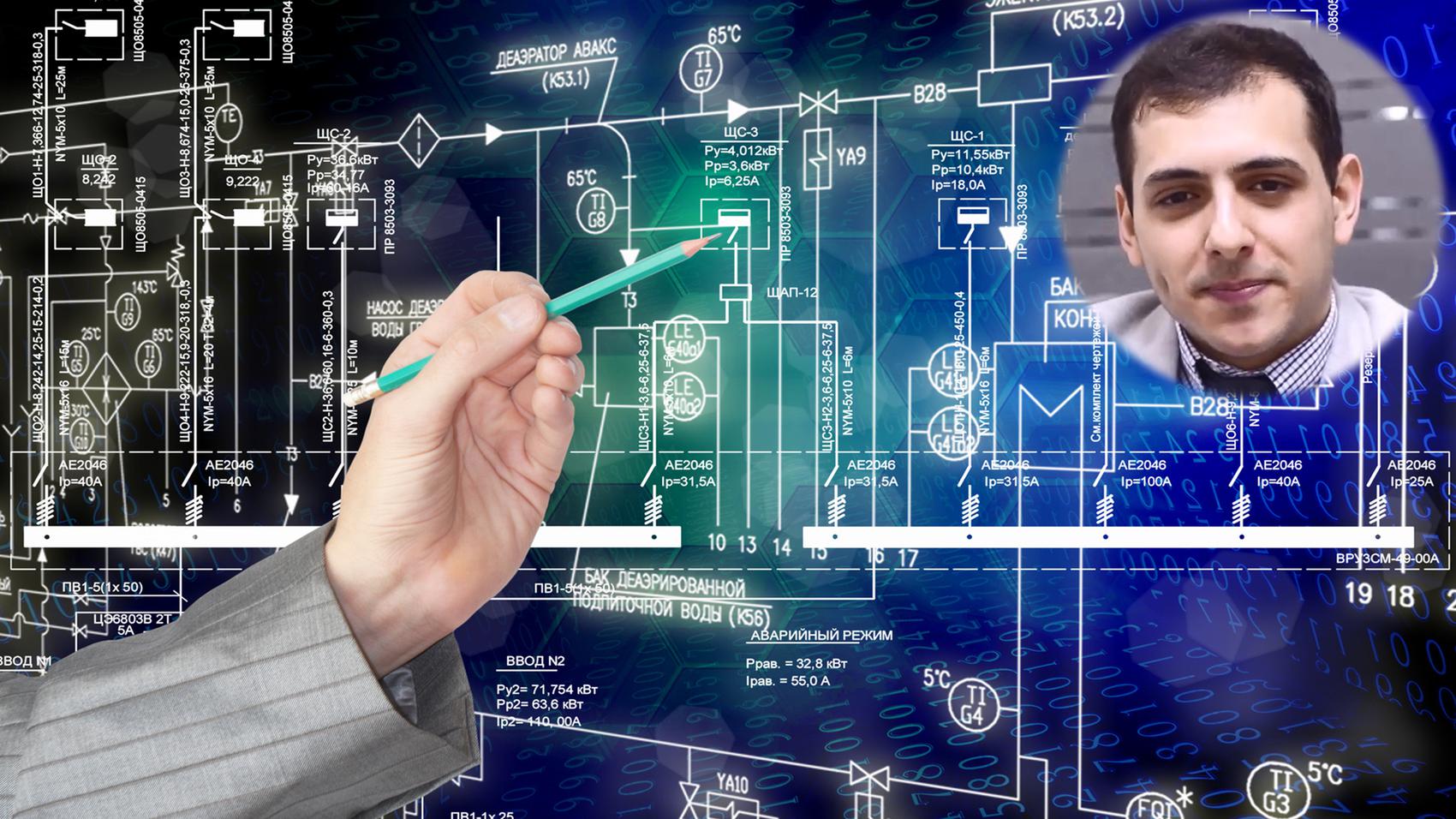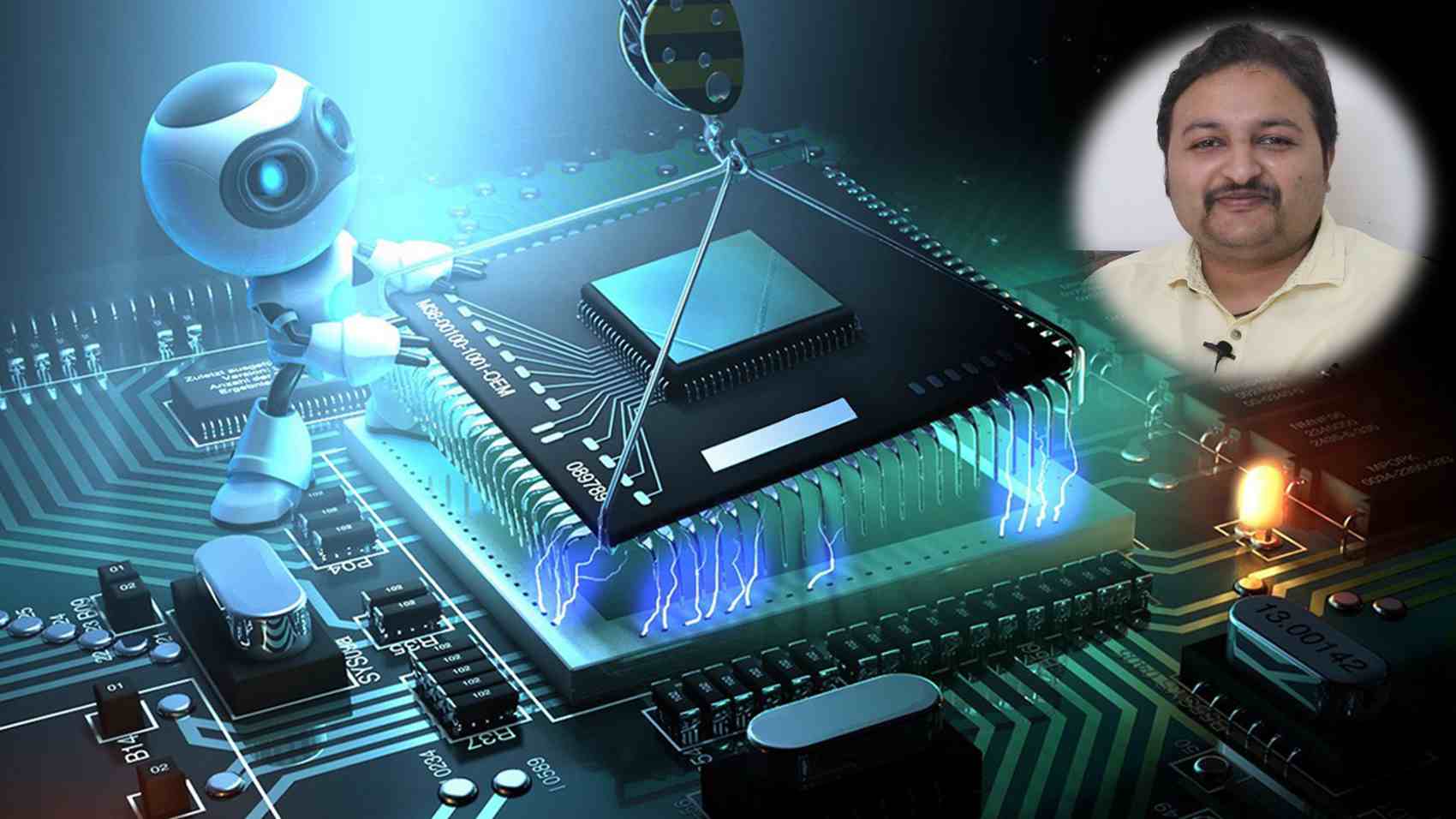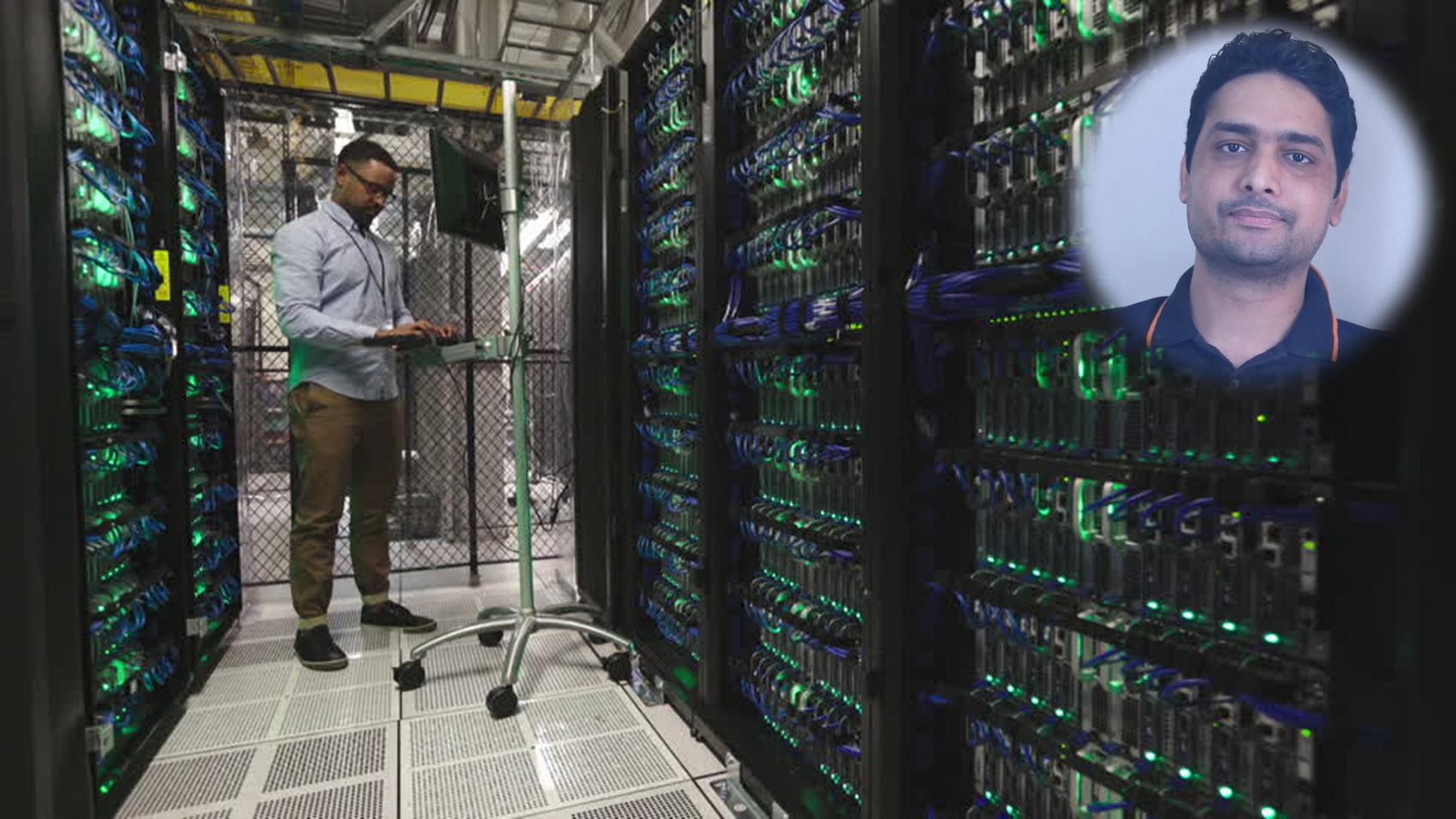Teaching Electronics & Communication
Dr Sandeep Sharma | Associate Professor | DIT UniversityWhat is Teaching Electronics & Communication?
A Career in Teaching Electronics & Communication is very interesting. One should first understand What a Career in Teaching Electronics & Communication entails before investing time and effort to figure out How to start a Career in Teaching Electronics & Communication. The internet is a great source of information on Teaching Electronics & Communication, but it is second best to learning about the same from a real professional.
With 13 years & 11 months of professional experience, Associate Professor Dr Sandeep Sharma understands Teaching Electronics & Communication. Associate Professor Dr Sandeep Sharma describes Teaching Electronics & Communication as:
Electronics and Communications engineering is an electrical engineering discipline which utilizes nonlinear and active electrical components (such as semiconductor devices, especially transistors, diodes and integrated circuits) to design electronic circuits, devices, VLSI devices and their systems. The discipline typically also designs passive electrical components, usually based on printed circuit boards.
How Associate Professor Dr Sandeep Sharma got into Teaching Electronics & Communication?
I have done B Sc and M Sc in Electronic Sciences. Post that I did Ph D in Theoretical Investigation of Transient Analysis of First Order and Second Order Loads powered by PV Generators from Department of Electronic Science, Delhi University. I have worked with various organisations like Converteam EDC Pvt. Ltd & Saora Informatics India Pvt. Ltd as Manager and Project Lead. I have been a Faculty with Maharaja Agrasen College, Manav Rachna College of Engineering. I am Head & Associate Professor with Department of Electronics & Communication Engineering at DIT University.
Associate Professor Dr Sandeep Sharma's Talk on Teaching Electronics & Communication |
|
| Starts with what is: | |
| 1) | Teaching Electronics & Communication |
| Next, it covers Education. We all know that only 10% of what is taught in Teaching Electronics & Communication is actually used in real life. The Education section of the Talk clearly explained what is the 10% needed in Teaching Electronics & Communication. It defines Education in terms of following items for Teaching Electronics & Communication: | |
| 2) | Communication |
| 3) | Embedded Systems |
| 4) | Circuit Design & Signal Processing |
| Then, the Talk focuses on the most important component that is Skills. Teaching Electronics & Communication demands specific Skills which only an experienced professional can lay out. It details these topics within Skills for Teaching Electronics & Communication: | |
| 5) | Motivation Skills |
| 6) | Facilitating Skills |
| 7) | Approachability |
| 8) | Research Bent |
| 9) | Proficiency in Software Tools |
| There are great positives of Teaching Electronics & Communication. This Talk defines Positives in terms of following items for Teaching Electronics & Communication: | |
| 10) | Respected Profession |
| 11) | Moulding Youth |
| 12) | Frequent Changes in Domain |
| 13) | Variety of Tasks |
| 14) | Chance to Implement Thoughts |
| There are a few Challenges in Teaching Electronics & Communication which one needs to be cognizant of: | |
| 15) | Student Buy-In |
| 16) | Bringing Students to a Common Platform |
| 17) | Guiding Students |
| 18) | Students Expectations |
| In the final section of the Talk, Dr Sandeep Sharma talks about How a day goes in a Career in: | |
| 19) | Teaching Electronics & Communication |
Install the LifePage App to:
- (for Free) Watch Associate Professor Dr Sandeep Sharma’s full Teaching Electronics & Communication Career Talk
- (for ? 100 or ? $ 1.4) Do a Self Assessment on Teaching Electronics & Communication to calculate your Dream Index, which is defined as:
According to Dr Sandeep Sharma your chances of success in Teaching Electronics & Communication is __%
- Access your personalized Dream Index Report which will have all your Dream Indices sorted in descending order.


How to get into
Teaching Electronics & Communication?
If you are want to get into Teaching Electronics & Communication, start by investing in a Career Plan.
The 14 hour process, guided by a LifePage Career Advisor, will help you introspect and check whether your interest in Teaching Electronics & Communication is merely an infatuation or is it truly something you wish to do for the rest of your life.
Next, your Career Advisor will help you document how you can get into Teaching Electronics & Communication, what education and skills you need to succeed in Teaching Electronics & Communication, and what positives and challenges you will face in Teaching Electronics & Communication.
Finally, you will get a Career Plan stating which Courses, Certifications, Trainings and other Items you need to do in the next 7 years to become world’s best in Teaching Electronics & Communication.
LifePage Career Plan
14 hour personalized guidance program


Your LifePage Career Advisor facilitates your guided introspection so that you systematically explore various Career options to arrive at a well thought out Career choice.
Next: your Advisor helps you figure out how you will get into your chosen Career and how will you develop the skills needed for success in your Chosen Career.
LifePage Plan will not stop at saying "to become an Architect study Architecture". It will guide you on which Certifications, Trainings and Other items you need to do along with your Architecture education to become the world's best Architect.
Links for this Talk
Associate Professor Dr Sandeep Sharma's LifePage:

[LifePage]
https://www.lifepage.in/page/sandeepsharma
LifePage Career Talk on Teaching Electronics & Communication

[Career]
https://www.lifepage.in/careers/teaching-electronics-and-communication

[Full Talk]
https://lifepage.app.link/20180509-0005

[Trailer]
https://www.youtube.com/watch?v=p3TFT2OPAvM
(Teaching Electronics & Communication, Dr Sandeep Sharma, DIT University, Associate Professor, Engineer, Engineering, Mentor, EC, Engineering College Teacher)
Similar Talks

Electronic Engineering
Mariano Fagre
Electronic Engineer | Facultad de Ciencias Exactas y Tecnologia, UNT
Electronic Engineer | Facultad de Ciencias Exactas y Tecnologia, UNT
[ 4 years Experience ]
Electronic engineering as such is one of the many branches of engineering, which is divided into subareas, such as control systems, power electronics, telecommunications and robotics. Telecommunications is an area within an electronic engineering that deals with the resolution of problems in the transmission and reception of signals between different systems, as well as in the design of such systems. When we talk about systems we can talk from, offering an internet service, whether through fiber optics or air, to design a radar that is going to be located on a ship, or to solve problems in satellite communications or in the Reception of communications through satellites.
"After completing my graduation, I worked abroad in a company in the United States. Currently I'm working in the same university that I graduated from as a profesor in the department of electronics 1. I also have a scholarship for PhD studies from CONICET."




|
An electronic circuit consisting of thin strips of a conducting material such as copper, which have been etched from a layer fixed to a flat insulating sheet called a printed circuit board, and to which integrated circuits and other components are attached.
"I did my graduation in B Tech Electronics from Rayat Bahra University. I also interned as an Engineer with Transwitch India Pvt Ltd. I have been working as a Design Engineer with CUBE 26 since 2013."




|

|

Electronics & Communication Engg
Vaibhav Parashar
Account Head - Marketing | Autometers Alliance Ltd
Account Head - Marketing | Autometers Alliance Ltd
[ 8 years & 3 months Experience ]
Electronic engineering (also called electronics and communications engineering) is an electrical engineering discipline which utilizes nonlinear and active electrical components (such as semiconductor devices, especially transistors, diodes and integrated circuits) to design electronic circuits, devices, VLSI devices and their systems. The discipline typically also designs passive electrical components, usually based on printed circuit boards.
"After doing my schooling from Saraswati Vidya Mandir School, Saharanpur, I did my B Tech in Electronics & Communication Engineering from Saroj Institute of Technology & Management, Lucknow. Thereafter, I did my MBA in Project Management from Sikkim Manipal University, Silchar. I have total 8 years of experience in the field of Telecom, Railway Telecom & Satcom for various Companies named Metro Telworks Pvt Ltd, Planetcast & Horizon Broadcast Electronics Pvt Ltd. I am working for Autometers Alliance Ltd as Account Head Marketing since 2016."




|

|

Network Protocol Engineering
Ravinder Punia
Lead Engineer | Samsung
Lead Engineer | Samsung
[ 6 years & 1 month Experience ]
Network Protocol Engineering is defining rules and conventions for communication between network devices.It include mechanisms for devices to identify and make connections with each other, as well as formatting rules that specify how data is packaged into messages sent and received.
"I did my Bachelors in Computer Applications from Kurukshetra University and Masters in Computer Applications from Thapar University. After completing studies in 2012 I joined Samsung as Network Protocol Engineer. I am Lead Engineer at Samsung."




|

|

Signal & Communication
Jasbir Singh
Chief Petty Officer | Indian Navy
Chief Petty Officer | Indian Navy
[ 14 years & 6 months Experience ]
In Signal Communication, a signal is a function that "conveys information about the behavior or attributes of some phenomenon". A signal may also be defined as an "observable change in a quantifiable entity".
"In 1967, I joined Indian Navy as a chief Petty Officer. In 1986, I got retirement and joined Ordinance Factory in Dehradun. After my retirement from Ordinance Factory I started doing Acupressure and Acupuncture as a social service."




|

|
[Install the LifePage App to access all Talks]



